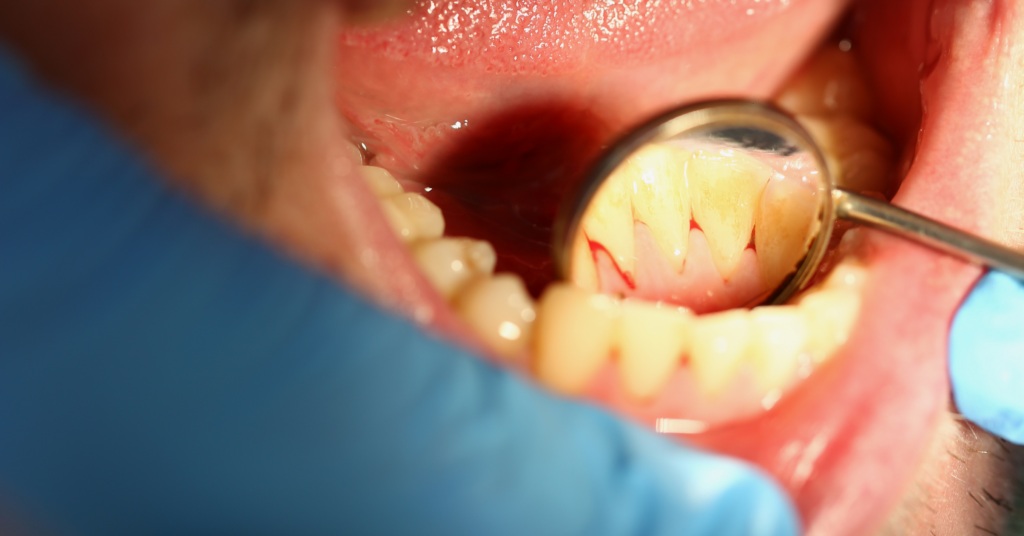Understanding the Causes, Treatment, & Prevention of Dental Abscesses


Have you ever experienced an intense toothache or noticed swelling in your face or jaw? These could be signs of a dental abscess, a painful condition caused by a bacterial infection. In this article, we will delve deeper into the causes, treatment, and prevention of dental abscesses, equipping you with the knowledge to maintain good oral health.
What is a dental abscess?
A dental abscess is a collection of pus that can form inside the teeth, in the gums, or in the bone that holds the teeth in place. This condition is typically a result of a bacterial infection. There are two main types of dental abscesses: periapical abscesses and periodontal abscesses. A periapical abscess occurs at the end of a tooth, while a periodontal abscess develops in the gum.
What causes a dental abscess?


Dental abscesses occur when pus accumulates beneath your teeth or gums due to an infection in your mouth. Several factors can contribute to the development of a dental abscess. These include an impacted tooth that hasn’t grown out of your gums properly, tooth decay, or gum disease. It’s crucial to address these issues promptly to prevent the occurrence of abscesses. While causes like impacted teeth and gum diseases can lead to abscesses, maintaining oral hygiene, especially with braces, becomes crucial. Learn about Oral Hygiene For Braces to understand the intricacies.
Signs and symptoms of a dental abscess
Identifying the signs and symptoms of a dental abscess is essential for early detection and treatment. Some common indicators include intense toothache or gum pain, redness inside or outside the mouth (including the face or jaw), sensitivity to hot or cold food and drinks in the affected area, a bad taste in your mouth, difficulty opening your mouth and chewing, or a swollen face or jaw. Additionally, if you experience a high temperature, it could be a sign of an abscess.
Risks associated with a dental abscess


While dental abscesses may seem like a minor issue, if left untreated, they can lead to severe complications. An abscessed tooth can cause tooth loss, damage to the jaw bone, sinus involvement, brain infection, heart complications, and even potentially life-threatening. It’s crucial to seek immediate dental care if you suspect a dental abscess to prevent these serious consequences. While natural teeth are at risk of abscesses, it’s also worth noting that dental implants can get infected. Get to know more about Can Dental Implants Get Infected? and the precautions needed.
What treatments are available for a dental abscess?
If you suspect a dental abscess, it’s important to visit a dentist promptly. The dentist will assess the situation and determine the appropriate treatment. Typically, dental abscesses are treated by draining away the pus. If the abscess is caused by a problem with the tooth, you may require root canal treatment or tooth extraction. Local anesthesia will be administered during these procedures to ensure that you do not feel any pain. While dental abscesses have specific treatments, those who wear dentures might wonder about their treatment options. Explore Dental Treatment options for denture patients for a comprehensive guide.
The best ways to prevent a dental abscess


Prevention is always better than cure, and the same holds true for dental abscesses. By following some simple practices, you can significantly reduce your risk of developing this painful condition. Here are some preventative measures:
- Drink water that contains fluoride: Fluoride helps strengthen your teeth and can protect against tooth decay, ultimately reducing the risk of dental abscesses.
- Brush your teeth for two minutes at least twice a day with fluoride toothpaste: Proper brushing techniques and using fluoride toothpaste are vital components of an effective oral hygiene routine.
- Use dental floss or a water flosser to clean between your teeth daily: Cleaning between your teeth helps remove plaque and food particles that brushing alone may miss, preventing tooth decay and gum disease.
- Replace your toothbrush every 3 to 4 months or when the bristles are frayed: Using a worn-out toothbrush can be ineffective in cleaning your teeth properly, so it’s important to replace it regularly.
In addition to the methods mentioned above, using the right oral care tools is equally essential. Discover The Importance of Choosing the Right Toothbrush and Toothpaste for maintaining a healthy mouth. By incorporating these preventive practices into your daily routine, you can minimize the risk of dental abscesses and maintain optimal oral health.
In conclusion, dental abscesses are painful conditions caused by bacterial infections. By understanding the causes, signs, and symptoms of dental abscesses, as well as the importance of timely treatment and prevention, you can take control of your oral health. Remember to prioritize regular dental check-ups and maintain good oral hygiene practices to keep dental abscesses at bay. Apart from addressing severe issues like dental abscesses, it’s also vital to take care of daily oral challenges. For instance, learn how to maintain fresh breath by reading Saying Goodbye to Bad Breath – Tips For Fresh Breath.
Your oral health is a vital component of your overall well-being, and we’re here to support and guide you every step of the way. Whether you’re dealing with the discomfort of a dental abscess, seeking preventative measures, or simply need a check-up, our team is committed to providing top-notch care tailored to your needs. Discover the difference a dedicated and compassionate team can make. If you’re looking for a trusted partner in your oral health journey, consider reaching out to your local south surrey dentist today.